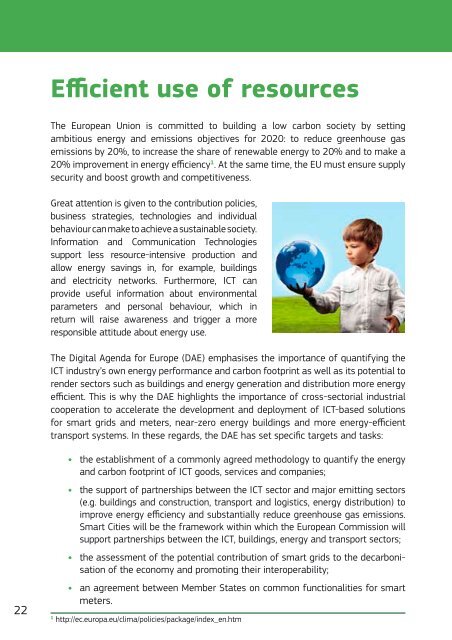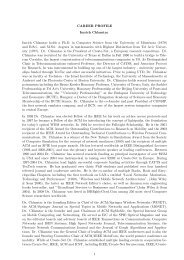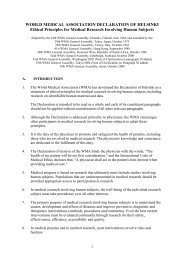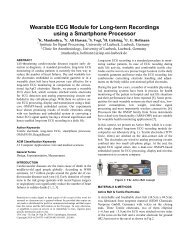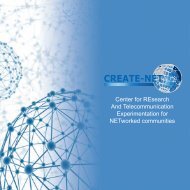ICT for Societal Challenges - European Commission - Europa
ICT for Societal Challenges - European Commission - Europa
ICT for Societal Challenges - European Commission - Europa
You also want an ePaper? Increase the reach of your titles
YUMPU automatically turns print PDFs into web optimized ePapers that Google loves.
Efficient use of resources<br />
The <strong>European</strong> Union is committed to building a low carbon society by setting<br />
ambitious energy and emissions objectives <strong>for</strong> 2020: to reduce greenhouse gas<br />
emissions by 20%, to increase the share of renewable energy to 20% and to make a<br />
20% improvement in energy efficiency 1 . At the same time, the EU must ensure supply<br />
security and boost growth and competitiveness.<br />
Great attention is given to the contribution policies,<br />
business strategies, technologies and individual<br />
behaviour can make to achieve a sustainable society.<br />
In<strong>for</strong>mation and Communication Technologies<br />
support less resource-intensive production and<br />
allow energy savings in, <strong>for</strong> example, buildings<br />
and electricity networks. Furthermore, <strong>ICT</strong> can<br />
provide useful in<strong>for</strong>mation about environmental<br />
parameters and personal behaviour, which in<br />
return will raise awareness and trigger a more<br />
responsible attitude about energy use.<br />
The Digital Agenda <strong>for</strong> Europe (DAE) emphasises the importance of quantifying the<br />
<strong>ICT</strong> industry’s own energy per<strong>for</strong>mance and carbon footprint as well as its potential to<br />
render sectors such as buildings and energy generation and distribution more energy<br />
efficient. This is why the DAE highlights the importance of cross-sectorial industrial<br />
cooperation to accelerate the development and deployment of <strong>ICT</strong>-based solutions<br />
<strong>for</strong> smart grids and meters, near-zero energy buildings and more energy-efficient<br />
transport systems. In these regards, the DAE has set specific targets and tasks:<br />
22<br />
• the establishment of a commonly agreed methodology to quantify the energy<br />
and carbon footprint of <strong>ICT</strong> goods, services and companies;<br />
• the support of partnerships between the <strong>ICT</strong> sector and major emitting sectors<br />
(e.g. buildings and construction, transport and logistics, energy distribution) to<br />
improve energy efficiency and substantially reduce greenhouse gas emissions.<br />
Smart Cities will be the framework within which the <strong>European</strong> <strong>Commission</strong> will<br />
support partnerships between the <strong>ICT</strong>, buildings, energy and transport sectors;<br />
• the assessment of the potential contribution of smart grids to the decarbonisation<br />
of the economy and promoting their interoperability;<br />
• an agreement between Member States on common functionalities <strong>for</strong> smart<br />
meters.<br />
1<br />
http://ec.europa.eu/clima/policies/package/index_en.htm


